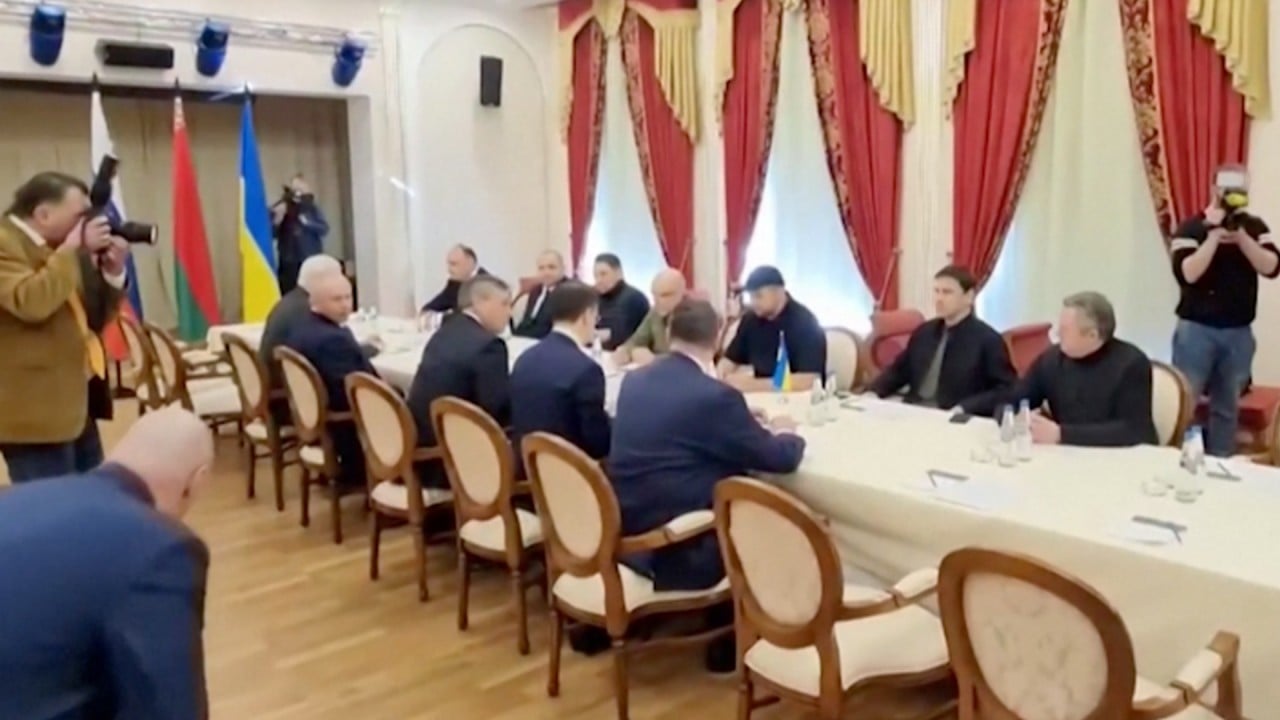
Ukraine invasion: Swift ban, sanctions cut Russian economy from the world. Will China’s yuan payment system offer a lifeline?
- Sanctions on Moscow are likely to accelerate connection and transactions between Chinese and Russian payment systems
- But cooperation between China’s central bank and its Russian counterpart could threaten the Chinese economy, analysts warn
China is unlikely to allow Russian banks banned from the Swift financial messaging system to use its own cross-border payment network to circumvent sanctions, as Beijing is cautious about provoking punitive action from the United States and European Union, analysts said.
Banning Russia from the financial messaging system means Russian banks can no longer use it to arrange payments with foreign financial institutions.
What is China’s Swift equivalent and what are its origins?
Shares of leading Chinese companies involved in developing payment infrastructure jumped early this week on news Russian banks would be booted from the Swift system.
“China will try to officially maintain the status quo regarding its trading relations with Russia,” said Igor Szpotakowski, head of research at the Chinese Law Association and Yenching scholar at Peking University. “As far as we now know CIPS will be a temporary alternative to Swift.”
CIPS relies on the Swift system for cross-border messaging, but it has the potential to operate independently and have its own direct communication line between financial organisations.
However, it will take significant time and expense for Russian banks to switch to an alternative system such as its own System for Transfer of Financial Messages (SPFS) or CIPS, both of which have far fewer financial institutions using them.
“It is like me being on WhatsApp. I am cut off from that and China says, ‘Hey look, use WeChat’. OK, so I use WeChat but all my friends are on WhatsApp,” said Fraser Howie, co-author of the book Red Capitalism and an independent China analyst. “I don’t have a direct like for like switch if I move into Chinese infrastructure.”
Pressure from Western countries may accelerate the connection between Chinese and Russian payment systems, but China’s overall willingness to support Russia is still unclear.
Two of China’s largest state-owned banks, the Industrial and Commercial Bank of China (ICBC) and Bank of China, are restricting financing for Russian commodities, especially in US dollars, according to Bloomberg, quoting unnamed sources.
“China is wary of getting stuck with a lot of bad Russian debts. That is the reason for stopping the financing of Russian commodity trade,” said Gary Clyde Hufbauer, non-resident senior fellow at Peterson Institute for International Economics.
What is Swift and what would happen if Russia is banned?
“Once Russia figures out a way to ensure that China gets paid, for example, by shipping gold to China as a guarantee, I think that finance will resume.”
Chinese banks will have to assess the risks when dealing with Russian clients, especially as the sanctions are unfolding, said Zhao Xijun, a professor of finance at Renmin University.
After Iran was excluded from the Swift system in 2012, Iranian banks were able to make and receive payments using financial institutions in third countries, though it came at significant cost.
Further cooperation between the People’s Bank of China and its Russian counterpart could be a major threat to the Chinese economy
In the meantime, analysts believe China will continue buying Russian hydrocarbons, grains and other commodities. Hi-tech imports from China will replace some of those that had traditionally come from the West, while Russia’s financial sector will be more dependent on China.
“Expanding China’s CIPS, even if it becomes a real solution, definitely will not be a rapid process. The fact is China has much more to lose than Russia.
“Monday’s sudden and big drop in the Russian rouble might be perceived as a good lesson of what could happen with national currency due to international sanctions, and Chinese policymakers are fully aware of it.”
While China’s support will help keep the Russian economy alive, Beijing has a host of domestic economic concerns to contend with, Howie said.
“Let’s not forget, China has a huge debt crisis … They cannot bail out any one of their provinces or Evergrande, which is around 3 per cent of the housing market, so where will they ever get the money to bail out Russia?” he said.
Additional reporting by Reuters and Bloomberg




